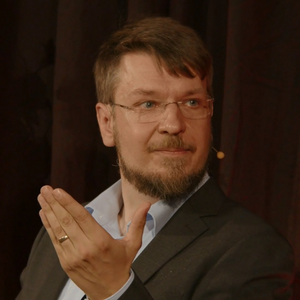Academic Activism: Should Science Speak Up?

12 - 1:30 pm Eastern Time (US)
Zoom Webinar
Please register to receive the Zoom link for the webinar.
Co-sponsored by the Office of Sustainability.
About the Event
 Shortly before the pandemic erupted our lives, economies, and societies, I believed to have experienced the most crazy thing I could think of. A youth movement named “Fridays for Future” rallied over the planet, mobilizing millions, in thousands of cities, in hundreds of countries, across the whole globe. What they demanded wasn’t revolution. Instead, their slogan was: “Unite behind the science”. Can you think of something more astonishing as a scientist?
Shortly before the pandemic erupted our lives, economies, and societies, I believed to have experienced the most crazy thing I could think of. A youth movement named “Fridays for Future” rallied over the planet, mobilizing millions, in thousands of cities, in hundreds of countries, across the whole globe. What they demanded wasn’t revolution. Instead, their slogan was: “Unite behind the science”. Can you think of something more astonishing as a scientist?
In every paper, there would now be a paragraph starting with “however”. Also here: However; what is the use of the upper slogan if science doesn’t speak up? If scientists see their role in searching for facts – but not in communicating them; along with demanding consequences to be taken. We’re getting better and better in describing the horror we’re heading for in terms of a climate catastrophe – but yet, most scientists are deeply into business as usual. Some even more than ever since.
Is it our moral obligation to speak up? Are we even qualified in doing so? And what challenges are we facing with that – especially after the eruptive events of the past three years.
This workshop intends to tackle these questions – together.
About the Speaker
 Sebastian Seiffert is a full professor for physical chemistry of polymers at Johannes Gutenberg-University Mainz. He obtained his PhD from Clausthal University of Technology (2007), with research on chain dynamics in semidilute polymer solutions and gels in the group of Wilhelm Oppermann. After spending another year in Clausthal as a lecturer on polymer physical chemistry (2008), Sebastian became a postdoc in the group of Dave Weitz at Harvard as a fellow of the German National Academy of Sciences Leopoldina (2009–2010), researching on microfluidics and microgels. Upon returning to Germany, he headed a junior research group at Helmholtz-Zentrum Berlin (2011–2014) as a Liebig fellow of the German Fund of the Chemical Industry (FCI). His first faculty appointment was as associate professor for supramolecular polymer materials at Freie Universität Berlin (2014–2016). In 2016, he followed a call to Mainz to take over the chair of physical chemistry of polymers formerly occupied by Manfred Schmidt [1995–2015], Helmuth Möhwald [1987–1993], and Erhard Fischer [1966–1983]. Sebastian’s work was honored with the Reimund Stadler Award of the German Chemical Society (GDCh), an annual award by the Association of German University Professors in Chemistry (ADUC), and a young investigator award by the Polymer Networks Group (PNG).
Sebastian Seiffert is a full professor for physical chemistry of polymers at Johannes Gutenberg-University Mainz. He obtained his PhD from Clausthal University of Technology (2007), with research on chain dynamics in semidilute polymer solutions and gels in the group of Wilhelm Oppermann. After spending another year in Clausthal as a lecturer on polymer physical chemistry (2008), Sebastian became a postdoc in the group of Dave Weitz at Harvard as a fellow of the German National Academy of Sciences Leopoldina (2009–2010), researching on microfluidics and microgels. Upon returning to Germany, he headed a junior research group at Helmholtz-Zentrum Berlin (2011–2014) as a Liebig fellow of the German Fund of the Chemical Industry (FCI). His first faculty appointment was as associate professor for supramolecular polymer materials at Freie Universität Berlin (2014–2016). In 2016, he followed a call to Mainz to take over the chair of physical chemistry of polymers formerly occupied by Manfred Schmidt [1995–2015], Helmuth Möhwald [1987–1993], and Erhard Fischer [1966–1983]. Sebastian’s work was honored with the Reimund Stadler Award of the German Chemical Society (GDCh), an annual award by the Association of German University Professors in Chemistry (ADUC), and a young investigator award by the Polymer Networks Group (PNG).